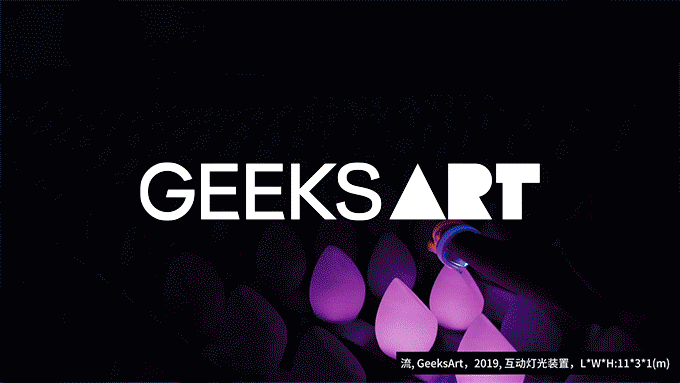“城市中伟大建筑经久存在,因为他们的形式能够容纳因时间变化而产生的不同功能。”
“The great buildings have survived precisely because of their form, one which is able to accommodate different functions over time.”
——Peter Eisenman
碰头吃饭 / MEET&EAT
MEET&EAT(简称M&E)是比褐商业旗下的一个餐饮复合空间,创始团队早在2018年就成功打造了位于巨鹿路的More than Eat(简称MTE)。他们敏锐的发现,在街区的食集社区里,餐饮可以不是主角,而社交才是。
MEET&EAT (hereinafter referred to as M&E) is a food and beverage complex space under Beheard Commerce, and the founding team successfully built More than Eat (MTE) on Julu Road back in 2018. They keenly discovered that that in a neighborhood food network, socializing is more important than dining.
▲MTE巨鹿路 MTE on Julu Road
▲MTE in 2021
▲M&E 古北店 M&E at Gubei
▲M&E建筑外立面 Elevation of M&E
“Food is new Fashion,无论是作为社交场景、文化媒介还是消费符号,”吃“都有着丰富的延展空间……当常规就餐已经不再具备吸引力,餐饮空间要想成为一个值得专门前往的目的地,空间要舒适开放、有归属感,契合生活的理念;而这里的商品,不仅需要有基础的品质,还要带来独特的文化视野。”这是公众号彼山对MEET&EAT的采访摘录,也是这个时代关于食物与美食的空间宣言,MEET&EAT以最朴素的初心,正创造着属于这个时代和这座城市(此时此地)的生活方式。
“Food is new Fashion, whether as a social scene, cultural medium or consumer symbol, “eating” has a rich extension of space. When conventional dining is no longer attractive, in order for a dining space to become a destination worth visiting, the space must be comfortable and open, have a sense of belonging, and fit in with the concept of life; while the goods here need to have not only basic quality but also convey a unique cultural vision.“ This is an excerpt from a MEET&EAT interview with the public account Pishan, as well as a space manifesto regarding food and cuisine in this era. With the simplest of goals, MEET&EAT is developing a lifestyle that is unique to this era and city (here and now).
2021年比褐商业择址古北社区,致力新的迭代品牌MEET&EAT实体空间的改造和运营,愿景在城市街角打造一处富有人情味的社交窗口。建筑可阅读,街区可漫步,空间可共享。MEET&EAT上海古北店,在老房子里建造一条可以见面偶遇,碰头吃饭的High Street,向上海,这座尊重社区空间的伟大城市致敬。
In 2021, Beheard Commerce chose the Gubei neighborhood to renovate and operate the physical space of the new iteration of MEET&EAT, with the vision of creating a social window of human touch in the urban street corner. MEET&EAT Shanghai Gubei store is a tribute to Shanghai, a great city that respects community space, by building a High Street in an old house where people can encounter each other and have meals together.
房子里的街区 / High Street in the House
作为一个非标的商业品牌,M&E的选址热衷于挖掘具有城市记忆的旧物业。”沿街最重要的空间要留给消费者“,这是创始人Jack的初心,也是我们打造”遇见街区“的设计原点。在与OUR都市再生的默契合作中,面对虹桥路1468号这栋原始图纸缺失,结构错综复杂的老房子,我们像一支建筑考古队,挖掘了基地,历史,结构和材料,以生活方式与城市记忆为蒙太奇拼贴,重构了High Street in the House的场景。
As a non-standard commercial brand, M&E’s site selection is keen on mining old properties with urban memory. “The most important space along the street should be reserved for consumers”, says Jack, the founder, and is also the initial design objective of “Meet the Block.” In the face of missing original drawings and structural intricacies, the design team used a montage collage to reconstruct the scene of High Street in the House.
▲内街轴侧 Exploded Diagram
▲碰头广场,Meet Square
▲地景花园,Pocket Garden
▲窗户与窗台,Windows Open & Close
▲共享长桌,Co-sharing Table
▲街区的旧材料,Vintage Materials in the street
▲街区的老牌坊,the old stone in the street
▲街区的新拱门,the new Arch in the street
基地位于古北社区,虹桥路与金珠路交界处。在周边高架桥,商场及写字楼巨大的城市尺度中,位于虹桥路1468号的这栋占地2000平方米,4层楼高的坡屋顶独栋建筑虽然不是历史保护建筑,但也颇具城市街头考古学价值。追溯到最早的文字记录,这里原是关勒铭钢笔厂的旧址,几经易手,成为了本帮菜餐厅鲜墙坊。几十年间,建筑外立面与室内空间经多次改造,且无图纸留存,城市记忆封存在无序的时空拼贴中。
The base is located in the Gubei neighborhood, at the junction of Hongqiao Road and Jinzhu Road. This 2,000-square-meter, 4-story, sloping-roofed single structure at 1468 Hongqiao Road is not a historically protected property, but it has significant urban street archaeological value among the adjacent viaducts, shopping malls, and office buildings. It was originally the site of the Guan Le Ming pen factory, which changed hands multiple times before becoming the local restaurant Xian Qiang Fang, according to the earliest documented documents. The building’s elevations and interior space have been modified multiple times throughout the decades, and no drawings remain, leaving the city’s memory sealed in a disorderly collage of time and space.
改造策略就是恰如其分的因地制宜,保留、修复、拆除、新建的取舍,不停的在现场漫游、阅读和体验,返回至三维模型的推敲,甚至让施工单位采样挖掘,机电设计在极限空间中的布管,在意外与不确定中寻找答案。
The renovation strategy is aptly tailored to the local conditions, and the trade-offs of preservation, restoration, demolition, and new construction. By constantly experiencing in the field, returning to the 3d model to push, and even letting the construction party sample and excavate, the electromechanical design in the extreme space of piping, the design team found the answer in the accident and uncertainty.
打开沿街的主立面,重新定义窗户,无关乎美或好看的形式,一切都因为人的行为。经过结构工程师的计算,我们扩大了现状窗户的尺寸,结合基地不同的室内外高差,以人的基本行为–站立、落坐、对谈、共饮为尺度,重构了窗台,结合上下与左右折叠窗,打开了内部街区与城市街道的联通。
Opening the main fa?ade along the street, the team redefined the windows, as independent of any form, all because of human behavior. After calculations by structural engineers, the team expanded the size of the current windows, combined with the different interior and exterior height differences, and reconstructed the bay windows according to the human behavior – standing, sitting, talking to each other, and drinking. By combining folding windows both vertically and horizontally, the interior blocks are connected to the city streets.
主入口处镶嵌LOGO的花砖,内嵌的门斗,通高的大堂,犹如老上海剧场般的空间序列。保留并修缮的实木楼梯甚至有些嘎嘎作响,裸露的混凝土墙体矗立一堵轻盈的显像玻璃,舞动的机械装置吊灯,经典与赛博的混搭。南侧公区是必不可少的大长桌,可同时容纳30人就餐;北侧公区是地台围绕的散座区,提供更加自由随意的落坐方式;穿越拱门,是一处可做脱口秀的室内微剧场。
The main entrance is inlaid with logo’s flower tiles, embedded door hoppers, and a through-height lobby, just like an old Shanghai theater-like spatial sequence. The preserved and restored solid wood staircase, exposed concrete wall, light glasses, and dancing mechanical device chandelier express the mix of classic and cyber. On the south side of the public area is the essential grand long table, which can accommodate 30 people at the same time; on the north side of the public area is the casual seating area, providing a more free and random way to sit. Through the archway is an indoor micro-theater for talk shows.
整个室内是一个属于美食家们的生活街区,我们将最好的空间留给共享空间,并提供不同场景和街景的社交场所。压缩每个店铺在传统意义上的落座区,塑造了广场,公园,碰头点,剧场,街角,秘径等让街区丰满生动的空间蒙太奇。
The whole interior is a living neighborhood for foodies, and the team reserved the best space for shared spaces and provided social places with different scenes and street scenes. By compressing each store in the traditional sense of a drop zone, the team has shaped squares, parks, meeting points, theaters, street corners, secret paths, and other spaces that make the neighborhood lively.
生长的设计 / Design of Growth
▲告别,鲜墙房永安大饭店 Farewell, Xian Qiang Fang Restaurant
▲净化,重塑空间框架 Purification, Restructuring the spatial framework
▲相生,与环境相生,创相遇之所 Intergeneration, Living with the environment, Creating a meeting place
▲生长,各新业态的加入与变化,促成空间的呈现 Growth, the new events and changes, contributing to the interior reforming
▲MEEBO KAFEE
▲你好,椒老师 Hello, Mr. Pepper
每个建筑都是一个不断生长的生命体,虹桥路1468号,从关勒铭到鲜墙坊再到MEET&EAT,永不停歇。在设计之初,我们就将此次改造定义为一次动态的设计,当改造后的空间渐渐显露,不同地域和风格的餐厅同时陆续进驻到MEET&EAT,完成“EAT”。本土品牌“MEEBO KAFEE”位于虹桥路的街角,流动的吧台,与空间融入的不着痕迹;“你好,椒老师”来自成都,以红绿撞色的复古街头感在内街开业;来自意大利的“Mammamia”,装备了海运三个月的披萨烤炉,大吧台面向内街开放……向城市公共空间开放的街区体验与具有时间记忆的生活内街的结合,这是一场关于生活方式与城市记忆的时空漫游,也是时间与空间的美食主义相对论。
Every building is a continuously growing living organism. At the beginning of the design, the team defined this renovation as a dynamic design. As the renovated space is gradually revealed, restaurants from different regions and styles move into M&E one after another, completing the “EAT”. The local brand “MEEBO KAFEE” is located at the corner of Hongqiao Road, with a flowing bar that integrates with the space without a trace; “Hello, Mr. Pepper” is from Chengdu, with a retro street feel in red and green; “Mammamia” is from Italy, equipped with a pizza oven that was shipped for three months, with a large bar open to the inner street. The combination of a neighborhood experience open to urban public space and a living inner street with time memory. This is a lifestyle and urban memory of the time and space roaming, but also the foodism relativism.
古北店去年圣诞试运营,已经成为了古北一带的社交生活碰头点;经历上海的疫情,在六月夏日的傍晚,折叠窗开启,与久违的朋友相约碰头。这里,MEET不仅EAT。
The Gubei store began its trial run last Christmas and has now become a neighborhood social life meeting point. After the Covid-19, opening the folding windows on a summer evening, people go to meet up with their long-lost friends. Here, MEET is not only EAT.
▲平面图 Plan
彩蛋 / To be Continued
与此同时,M&E没有放慢脚步,我们也正在为M&E设计上海的第二个碰头点,这将是一个可以时刻遇见,充满绿色与氧气,会呼吸的街区。街区是有生命力的,是不断生长变化的,“地台”“主街”“花园”“街角”“车厢”不同的街景,人与人之间将在新的碰头点发生更多关于这座城市的故事。
In the meantime, M&E is NOT slowing down, the team is designing a second meeting point for M&E in Shanghai. This will be a neighborhood that can be met moment by moment, full of green, oxygen, and breathing. The neighborhoods will be alive, growing, and changing, with “terraces”, “main streets”, “gardens”, “street corners” and different street scenes of “carriages”. People will have more stories about the city in the new meeting point.
▲M&E@莘庄,场景插画 Scene Illustration
项目信息——
项目名称:房子里的街道,MEET&EAT虹桥路店
项目业主:比褐商业
设计单位:OUR都市再生,TOPOS DESIGN
项目管理团队(业主方):Jack,Kimi,Wendy
项目经理:朱灵,邢薇,孙菲
项目建筑师:林晨
建筑设计:陈晓楠(主创),沈筱雅
室内设计:吕杰(主创),冯岩岩,蒋烨蕾,王雨桐
机电设计:钱薇(总负责),张江南(暖通),朱辰杰(电气),王凤钱(给排水)
施工单位:上海宏威建设工程有限公司
建筑摄影:朱润资
项目地址:中国,上海
设计时间:2021.04至2021.08
施工时间:2021.06至2021.12
Project Information——
Project Name:High Street in the house / MEET&EAT @ Gubei, Shanghai
Clients:Beheard Commerce
Design:Office for Urban Renewal, TOPOS DESIGN
Project Management Team ( Owner’s Side ):Jack,Kimi,Wendy
Project Manager:ZHU Ling, XING Wei, SUN Fei
Project Architect:LIN Chen
Architectural Design:CHEN Xiaonan ( Principal Architect), SHEN Xiaoya
Interior Design:LV Jie ( Principal Architect), FENG Yanyan, JIANG Yelei, WANG Yutong
Mechanical and Electrical Design:QIAN Wei ( General Responsibility ), ZHANG Jiangnan ( HVAC ), ZHU Chenjie ( Electrical ), WANG Fengqian ( Water supply and drainage )
Construction side:Shanghai Hongwei Construction Engineering Co.
Photo Credits:ZHU Runzi
Project Location:Shanghai, China
Design Year & Completion Year:2021.04 to 2021.08
Construction Year & Completion Year:2021.06 to 2021.12
































